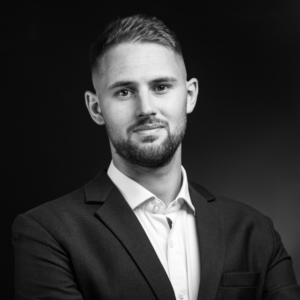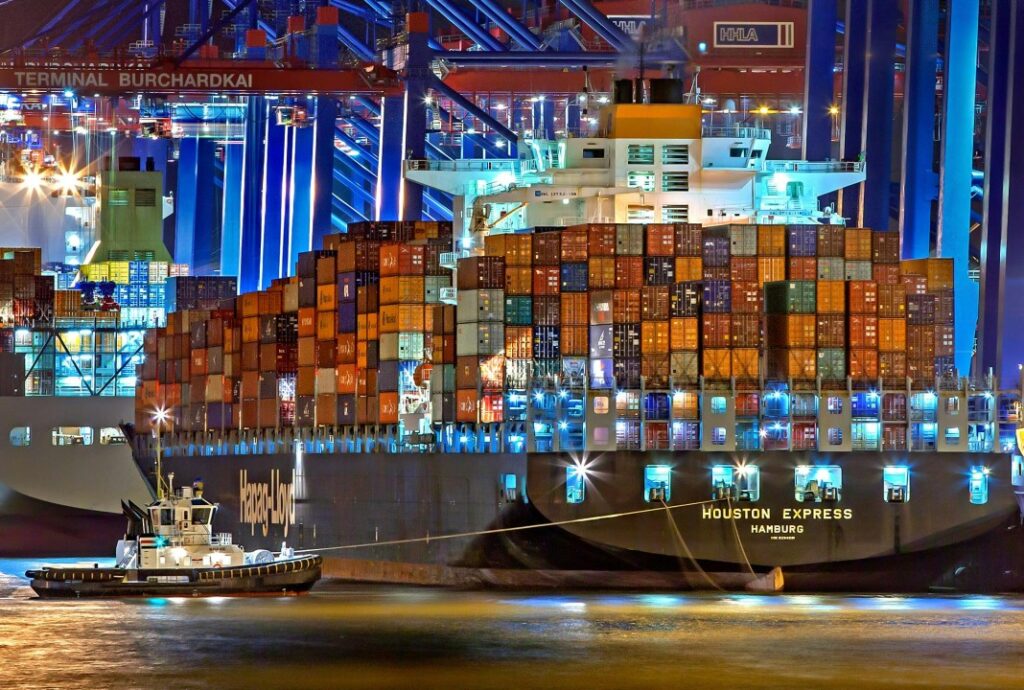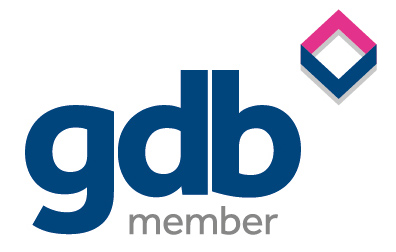Harvey John
Unit 2 Ferry Wharf
Hove Enterprise Centre
Basin Road North
Portslade, East Sussex
BN41 1BD
In the latest edition of The Tax Expat, Marius explains how a change of career can still lead to great opportunities. His experiences shed light on what it takes to pack your bags and relocate. For many, the first move may be one of many, but undoubtedly, it could well be the hardest. With that in mind, Marius gives a refreshing account of his relatively recent relocation.
Marius, a big thank you for agreeing to participate in this week’s tax expat. I must say, I feel a slight bit of pressure knowing that you’ve had over 4 years of experience as a news reporter, so I must make sure my questions are of top quality! I’ll keep it simple, to begin with, Marius, please could you tell our readers a little bit about yourself?
To begin with, thank you for the opportunity of this interview. I must confess that I feel quite honoured and a bit pressured as it’s the first time I’m in the position of the interviewee. As a journalist, I was usually the one asking the questions, but I’m very happy to take this challenge.
I was born in communist Romania, 3 years before the fall of the Ceausescu regime. I started school in Bucharest and, in the fifth grade, I got transferred to a bilingual school where I had the chance to intensively study English. After finishing high school, I had to decide where to continue my studies. My first choice was law school, but a few months before the exam I felt it might not be the best option at the time and ended up studying economics instead.
During my first years as a student, I also had a part-time job as a translator at a news agency in Bucharest. After a couple of years, I was lured by journalism and was offered the opportunity to move to the editorial desk and start writing my own stories. And so, I became a business journalist. I did the remaining of my studies and my job in parallel. It was a truly exciting period of my life, full of experiences which shaped my mindset and approach towards the future.
Due to the financial crisis in 2007, I left journalism a few years later and joined a Big 4 firm in Bucharest. After working for a few years as a tax professional, I felt it would be a better timing and certainly an added value to also study law, so I enrolled at the University of Bucharest. After almost a year I had to drop law school as I received a job offer from Luxembourg.
And here I am, one year later, telling the story of my first year as a tax expat.
I’ve already touched upon this of course, but having spent 4 years at the start of your career in journalism, what led to you entering the world of tax?
I cannot say I made a career out of journalism as I didn’t stay long enough, but for sure it was one of the most exciting and fulfilling periods in my professional and personal life. Journalism in a news agency was thrilling. It was about good writing, deadlines, meeting people, sharing ideas, expanding the professional network, travelling, staying long hours over a beer (or two) with fellow journalists, and competing against each other the next day to deliver the best stories. Journalism had a funny way of getting under your skin and could easily become addictive. A good story was able to shift the market and decision-making processes in business and society. And the thrill of finding that story and the power it gave to you made you keep looking for the next one.
Things were going quite well. I was learning a lot and was getting better at what I was doing. However, the financial crisis hit in 2007. In the following years, it affected the press as a whole, which was quite severely impacted financially. The perspectives to work in this field didn’t seem encouraging anymore. I took a glance towards what my future could look like and knew I had to decide on the present. After carefully weighing the options I had, I decided to leave journalism and soon knocked at the door of a Big 4 firm in Bucharest. And so I started my career as a tax professional.
Bucharest has certainly contributed its fair share of tax professionals to the industry, and with yourself having experience within several Big 4 firms, as well as Taxand. When did you realise that you wanted to explore options away from Romania?
More than a year ago, I felt that the country where I was born wasn’t heading in the right direction. Though part of the European Union, it seemed to be straying away from the EU values. I wasn’t feeling comfortable in my own country anymore and felt the need for a change.
I looked for a place where I could continue my career as a tax professional at an international level and which was closer to my values and beliefs. The Benelux countries seemed to have all the right ingredients. I was lucky to quickly receive an offer from a Big 4 firm in Luxembourg. But never having lived there, I had no idea what to expect, as I knew very little about the country itself, the society, and the working culture. I could say that I stepped into this new universe a bit blindfolded.
As a recruiter with no real country limitations, I can certainly see the appeal of working in one of Europe’s financial hubs. How did the position in Luxembourg arise? Was Luxembourg the goal from the beginning of the job search, or was it random?
The choice was not random at all. Luxembourg was on the shortlist of a few countries I was aiming at. Apart from the Benelux countries, there was also Switzerland and the UK which I was also considering at the time. But, as I wanted to stay within the EU, when I received the job offer from Luxembourg, it made perfect sense.
You’ve been in Luxembourg for around a year now. Other than Romania being over 90 times the size of Luxembourg, what have been the biggest differences for you, and how have you faced them?
A major difference would certainly be in terms of prices. Accommodation, for instance, could be quite expensive in Luxembourg and it could be quite difficult to find a nice place to live at an affordable price, given also the high competition on the market. With thorough research and a bit of luck, however, I was able to find a place where I’m comfortable living.
Another difference that I would mention is that Luxembourg is a quieter city than Bucharest. For someone who enjoys a noisier city, it could be more difficult to adjust. It wasn’t my case though, as it was a nice escape from all the noise and traffic in Bucharest. Not to mention the pollution. Luxembourg is very green compared to Bucharest.
One thing that I particularly liked is that I didn’t hear people talking that much about politics. As for the weather, I honestly had the worst expectations, but it turned out to be just fine.
I do sometimes miss the Carpathian Mountains and the Black Sea in Romania, but so far, I’ve compensated with all the nice places I’ve visited in and around Luxembourg. Being at the intersection of so many cultures can be very rewarding.
I can see that you had a 6-month stint in a Big 4 firm in Luxembourg, before moving on to another. If the first role wasn’t for you, how resilient did you have to be to stick around to find the next?
My first role here in Luxembourg wasn’t indeed a good fit. I was very motivated, though, to stay in Luxembourg and had no intention of going back to Romania. Therefore, I had no choice but to keep going and push myself forward. An opportunity arose sooner than I thought, and I was happy to take on another challenge.
I must admit, I’m slightly envious of how many countries you can easily visit from where you are, but excluding that, do you feel that Luxembourg is a forever location? Everyone says there’s no place like home, but I’m always intrigued to hear if that’s not always the case.
I tend to be cautious before making forever plans. Life has taught me so far that it can sometimes be quite unpredictable and certain things are just outside one’s control. But for sure my long-term plan is to stay in Luxembourg. I like the country and I feel that I have a good chance to continue to build my career here.
The first year abroad was quite intense so I didn’t have much time to get home sick. Whenever I miss my family, though, I just pick up the phone and call them.
I mentioned your employment history briefly in an earlier question, but what are the main differences that you’ve seen when comparing the Big 4 to the relatively smaller advisory firm Taxand?
First of all, I think that the atmosphere was a bit more relaxed overall compared with the one in the Big 4. The professionalism and the demands, however, were at very high levels.
An important difference, which I’d assume also applies to other smaller firms is that, for attracting new business, it’s quite difficult to rely that much on the internal network, which works so well in the Big 4s. On one hand, this makes the process of bringing new business more challenging, but on the other hand, it provides the best learning opportunity in terms of building and developing client relationship skills.
Thirdly, a more generalist approach seems to be taken towards the projects, meaning that there isn’t always a split of the work between people depending on the tax involved, i.e. VAT, corporate income tax, etc. People are quite often taking projects involving various taxes and they have a general knowledge in mostly all tax areas. For the personal development of the individuals, this is certainly a positive aspect.
What have you found to be the biggest challenges when reflecting on your experiences to date?
Changing the country was the biggest challenge. Honestly, for me, it was more difficult than quitting smoking. All the processes related to relocation like finding a place, moving all the stuff from one country to another, opening a bank account, but also getting used to the new working environment and most of all, with the languages, was quite challenging. I found the latter most challenging, particularly in terms of integration. English is widely spoken in Luxembourg, but it’s none of the country’s official languages. Realizing that for better integration, more than English would be required, I quickly started taking private French lessons to improve my level.
What advice can you share for other tax professionals who are considering a relocation abroad for their career?
If you have the chance, take it! An international experience is worth all the effort.
Thanks, Marius. I appreciate the honest portrayal of the logistical conundrum you faced when relocating. With myself being someone who’s moved around the UK several times, I can only imagine the extra effort you need to put in when moving countries. Putting the logistics aside, the way you transitioned from journalism to a completely different sector like tax, resonates not only within the tax world but to anyone thinking that just because you’ve trained in one area, you’re then tied down!
Are you a Tax Expat? If so, we’d love to hear about your experiences and share them with our global tax network. For more information, please contact Alex Mann.
If you would like to see our company updates and industry insights, follow our LinkedIn page here.
Author

From boutiques to the Big 4, and start-ups to multinational corporations, Alex manages a diverse portfolio of clients worldwide which has enabled him to develop a vast global network of indirect tax and tax technology professionals in 40+ countries.







